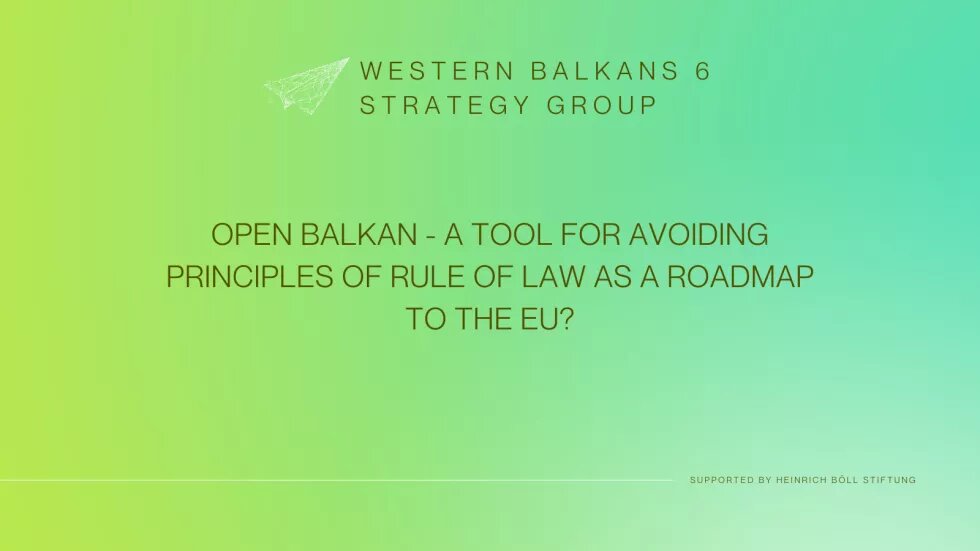The Western Balkans 6 Strategy Group, working under the auspices of the Heinrich Boll Stiftung, assesses the Open Balkan project as an enterprise that would adversely compete with the Berlin Process and, at the same time, lead regional integration towards an unacceptable and fragmented direction.

Namely, both Open Balkan and the Berlin Process tackle the same scope of work - freedom of movement of people, services, goods, and capital. While these focuses are overlapping, the Berlin Process has a clear set of standards that must be applied as stipulated by the EU acquis. On the other hand, Open Balkan is not bound to any EU standard, and regional leaders may direct it to tracks that are not controllable from an EU enlargement policy perspective, nor dedicated to the rule of law.
As a reminder, Berlin Process is designed to fulfil an intermediary function in the EU accession process, and, at the same time, serve as an acceleratory tool that would bring in EU standards through financial incentives. In that respect, its inclusivity is central to these developments.
The initiators and advocates of the Open Balkan project avoid explaining how the Open Balkan will be reconciled with the Berlin Process and Enlargement Policy, as well as further Common Regional Market and how feasible it would be to create two frameworks that intend to regulate the same issues.
Moreover, one has to consider the territorial perspective of the Open Balkan Project. As it stands right now, Albanian Prime Minister Rama and Serbian President Vučić are “selling” it as a take-or-leave initiative. Hence, it seems to be dedicated to exclusion as opposed to the WB6 as the unnegotiable and crosscutting premise. Also, high level of distrust of all neighbors towards Serbian leadership prevents any initiative coming from Belgrade. With Bosnia and Herzegovina, Kosovo and Montenegro laying many question marks on the inclusivity nature of the Open Balkan, the legitimate is to wonder whether Open Balkan is bringing back the dissimilar and divisive treatment of the Western Balkans?
Furthermore, there is a concern that the Open Balkan project is widening the gap – or, at best, creating a gap – between the transatlantic partners. Many European capitals are unconvinced about this project, as it fails for quite some time to ensure trust within the countries into good intentions of the initiators and advocates, and consequently application of the principle of inclusiveness (WB6) and harmonizing with the EU acquis and best practices. In addition to this, one of the initiators and advocates – Serbia, is facing serious announcements for slowing down the accession negotiations, as it remains persistent in avoiding to fully align with the EU sanctions to Russia because of the aggression on Ukraine. In that sense, Open Balkan will not contribute to European solidarity over the WB6, but has the potential to create more divisions than one can observe now (and that, not only in the Balkans but also in the transatlantic perspective) and will harm the nature of regional cooperation on the equal footing basis.
In that framework, this Strategy Group urges EU member states, primarily Germany, to boost the Berlin process and hence revitalize the enlargement perspective, including reconsidering the decisions on opening the accession negotiations with Albania and North Macedonia.
The Western Balkans 6 Strategy Group